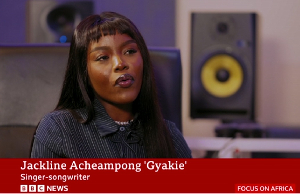Mr Ogochuku Nweke, Director of Students Affairs at the African University College of Communication, has observed that Information Communication Technology (ICT) could be used to deepen participatory democracy in Ghana to enhance business activities.
He said many people with ICT backgrounds could communicate with their Members of Parliament, Ministers and other government appointees, and make their concerns known to them, noting that exchange of communication is no longer a barrier.
Mr Nweke who was delivering a lecture in Tamale on Thursday to mark the fifth anniversary celebration of Savana Signatures, said ICT tools especially mobile phone devices, must be constructively utilized by the youth for development.
The anniversary was being celebrated under the theme: “Development through ICT, the Role of the Youth.”
Savana Signatures is a non-governmental organization focusing on ICT for development, and operates in the Northern and Volta Regions.
Mr Nweke said ICT contributed significantly to make the 2012 elections free and fair, and suggested for its usage in subsequent elections, saying, “The 1992 Constitution of Ghana must be reviewed to make it ICT-friendly”.
He urged business entities and the youth to take advantage of the sprawling opportunities on social media, to advertise and market their products and services, noting that such platforms could be used by many individuals and companies at cheaper costs.
Mr Nweke indicated that the potentials of ICT had not been fully utilized in the country, and suggested that farmers could use mobile phones to improve Agriculture, explaining that its use could transform agricultural productivity.
Mr John Stephen Agbenyo, Executive Director of Savana Signatures, said the organization started on a humble beginning, which was then called Northern Information Network for Schools, but later registered as an NGO in 2009 with the current name.
He said the mission of the NGO is to equip the youth, women and the vulnerable groups with ICT skills for personal and professional use, stressing that it works in four thematic areas, including education, gender and sexual reproduction rights.
Mr Agbenyo said it has trained many teachers, formed ICT clubs and clinics, established ICT laboratories in some basic schools, and introduced ICT in educational pedagogy, and expressed the hope that better developments were underway to assist many schools and individuals with ICT skills.
Alhaji Adam Yakubu Mohammed Baba, Central Gonja Director of Education, expressed worry that despite the introduction of ICT as an examinable subject at the Basic Education Certificate Examinations (BECE), some pupils in his district still write the examinations abstractly because they had not seen a computer before.
He urged government to expand ICT to rural communities, and said the situation where pupils continued to write BECE without seeing a computer was very unfortunate.
Regional News of Saturday, 2 August 2014
Source: GNA
Use ICT for participatory governance - Lecturer
Entertainment











